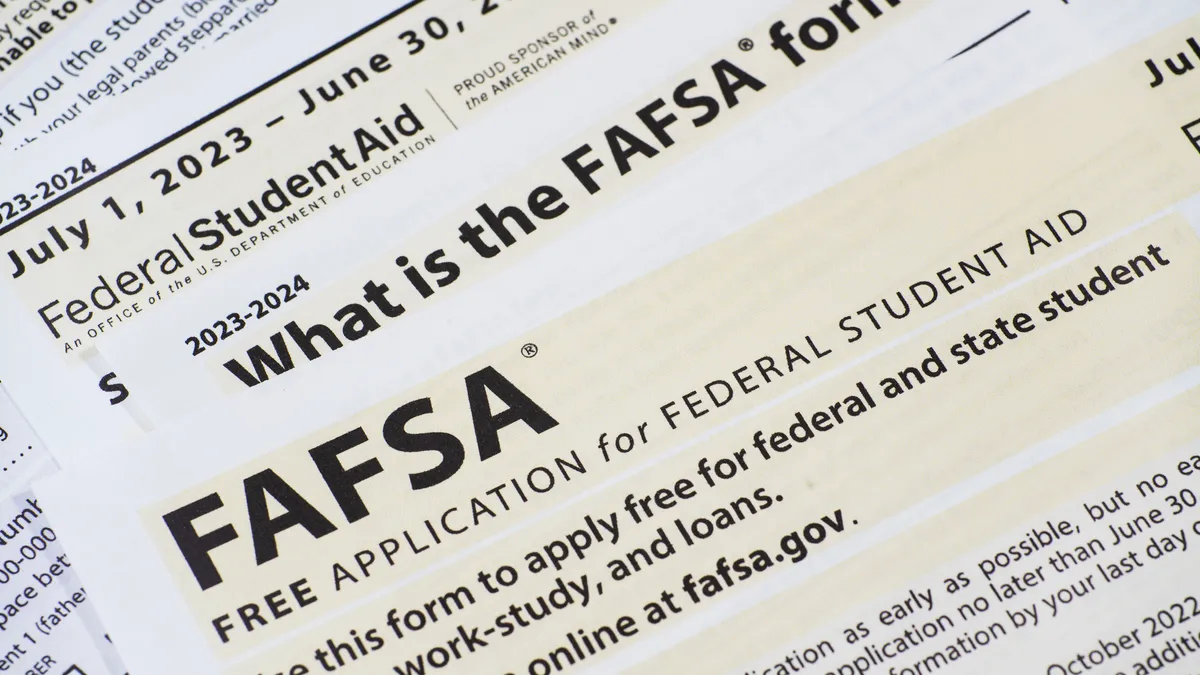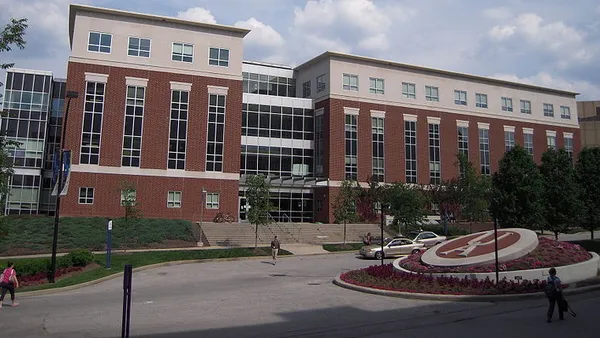Dive Brief:
- About 330,000 federal financial aid applications will need to be reprocessed following yet another data error, according to the U.S. Department of Education. This development continues a trend of glitches and technical difficulties in a tumultuous cycle with the updated Free Application for Federal Student Aid.
- Of the over 6.6 million FAFSAs submitted thus far, about 5% contained errors that would make students eligible for less financial aid than they are entitled to, the Education Department said Monday. The agency will begin automatically reprocessing these applications in the first half of April.
- Another 10% erroneously granted applicants access to too much aid. "Where adjustments would result in less aid to students, we will not reprocess unless asked to do so by schools after exercising their professional judgment," Richard Cordray, chief operating officer of Federal Student Aid, said in a statement Tuesday.
Dive Insight:
In 2020, Congress directed the Education Department to simplify the FAFSA. The form acts as a gateway to federal student aid. Colleges and states also often use it as a guide to disburse their own aid.
But students and their families found the FAFSA grueling, requiring them to answer over 100 questions.
The updated version is much more streamlined and asks applicants to answer several dozen questions at most. However, the Education Department didn't make the form public until late December — about three months after the typical release date — and the process has been plagued by technical glitches ever since.
Last week, the department pushed back the expected timeline for when applicants could update their submitted FAFSAs, shortening the window for corrections to be made. Just a few days before, it had said aid for dependents with assets had been miscalculated.
The department is now handling a tax data issue, it said Monday. The updated FAFSA pulls some information directly from the IRS, in a move intended to make the process easier for applicants.
But the Education Department found errors in automatically imported data like applicants' adjusted gross income, tax filing status and education tax credits. The issue is limited to applications submitted before March 30, and the department is working with the IRS to address it.
The National Association of Student Financial Aid Administrators said the Education Department has acted quickly to fix issues as they arise and kept the financial aid community informed.
Still, the continuous problems have made life difficult for students and financial aid staff.
"Continually taking two steps forward and one giant step back is not a sustainable pathway toward getting financial aid offers out to students and families,” Justin Draeger, president and CEO of NASFAA, said in a statement Tuesday.
Cordray Tuesday acknowledged that implementation of the updated FAFSA has been "particularly challenging."
Going forward, colleges are expected to receive student records within three business days of the form's submission, he said. And the department is set to host a FSA webinar for colleges addressing the tax data issue on Wednesday.
The ongoing FAFSA delays have left students with less time to compare financial aid offers and make a college decision than in a typical year. In response, many colleges have postponed their commitment and financial aid deadlines for the 2024-25 academic year.














